40+ Sample Compliance Agreement
-
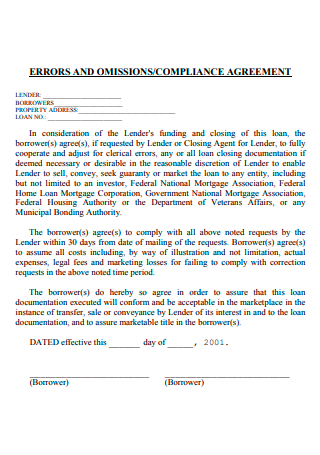
Compliance Agreement Template
download now -
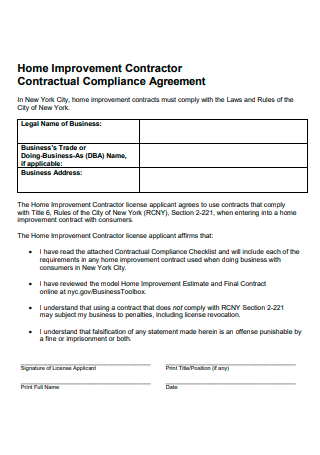
Contractual Compliance Agreement
download now -
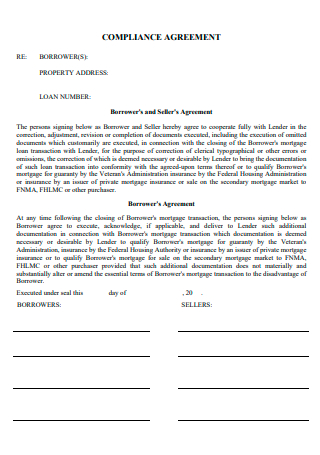
Basic Compliance Agreement
download now -
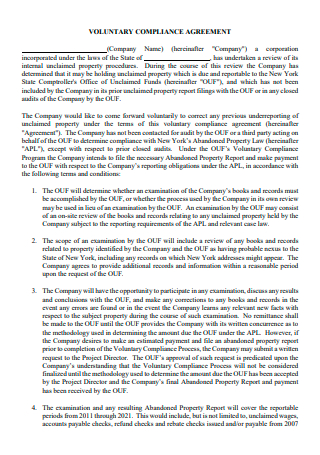
Voluntary Compliance Agreement
download now -
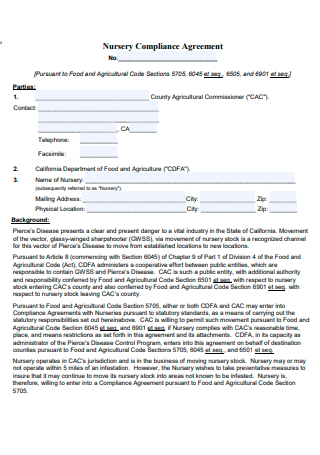
Nursery Compliance Agreement
download now -
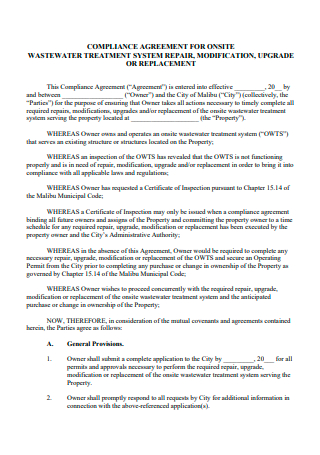
Compliance Agreement in PDF
download now -
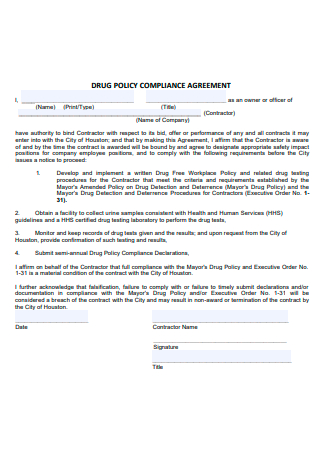
Drug Policy Compliance Agreement
download now -
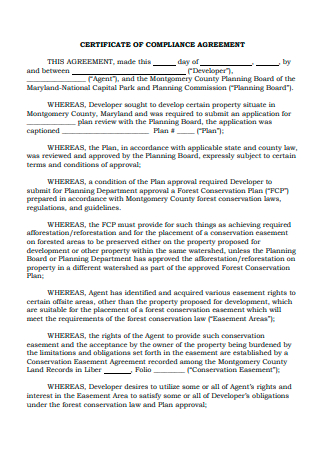
Certificate of Compliance Agreement
download now -
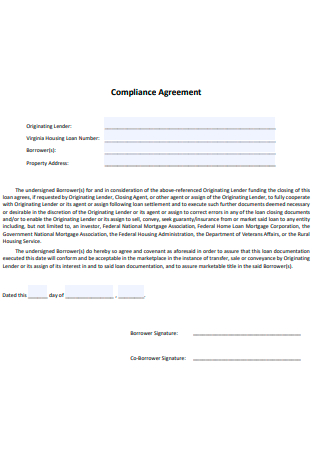
Simple Compliance Agreement
download now -
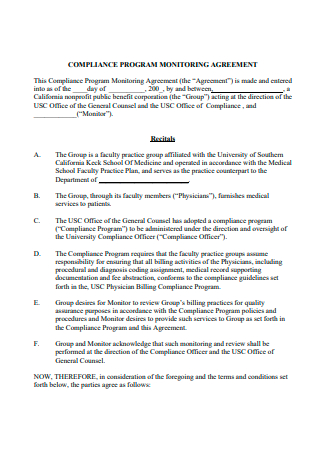
Compliance Program Monitoring Agreement
download now -
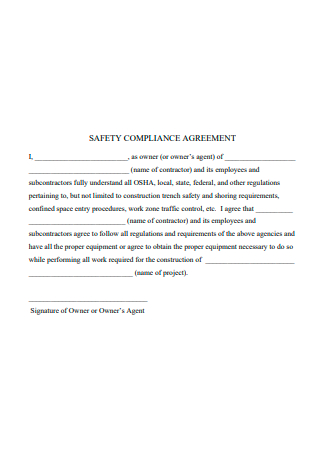
Safety Compliance Agreement
download now -
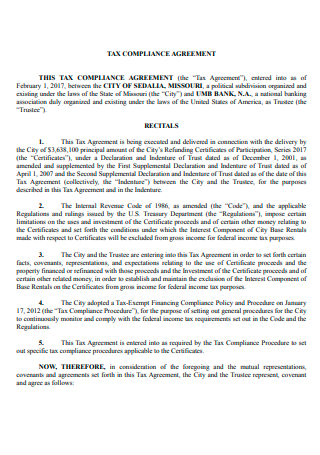
Tax Compliance Agreement
download now -
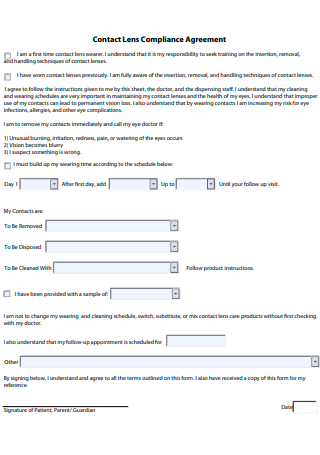
Contact Lens Compliance Agreement
download now -
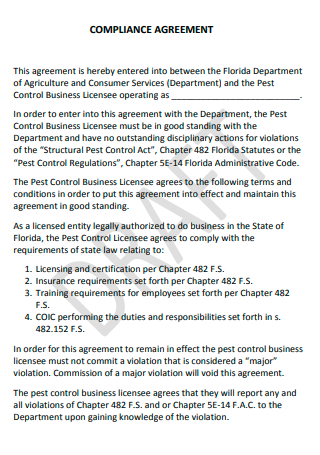
Draft Compliance Agreement
download now -
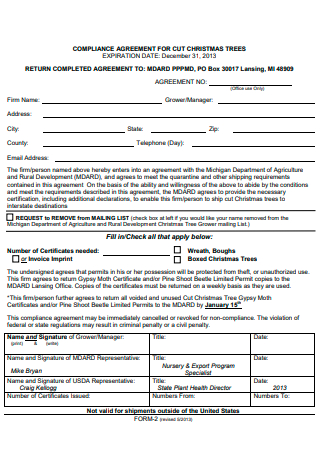
Compliance Agreement For Cut Christmas Trees
download now -
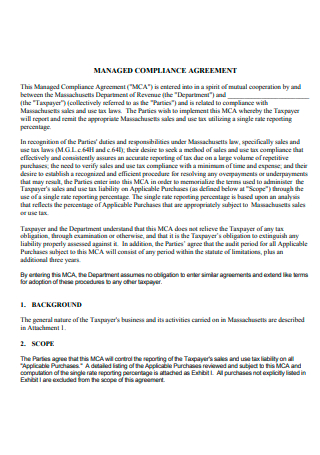
Managed Compliance Agreement
download now -
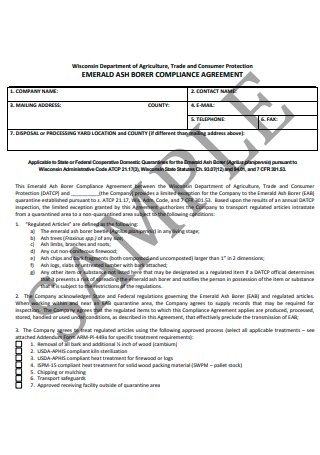
Sample Compliance Agreement
download now -
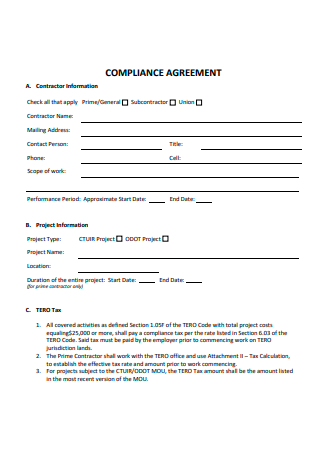
Compliance Agreement Example
download now -
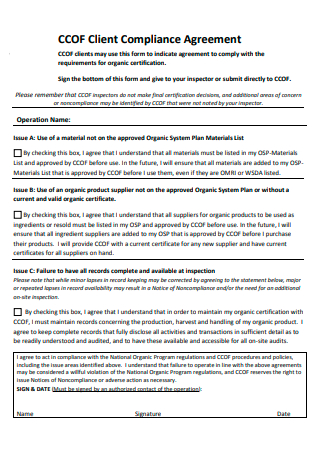
Client Compliance Agreement
download now -
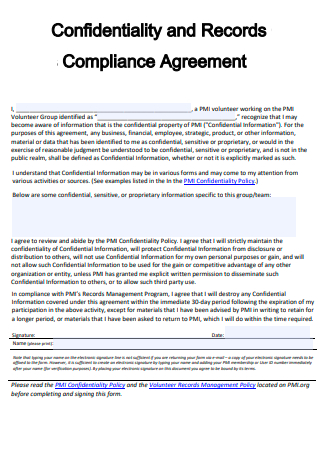
Confidentiality and Records Compliance Agreement
download now -
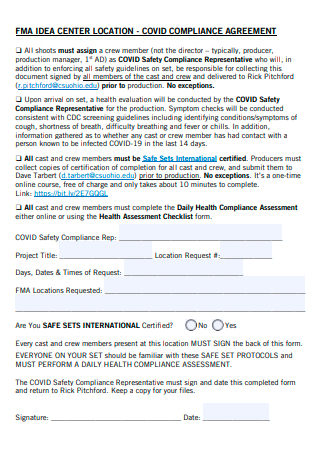
Covid Compliance Agreement
download now -
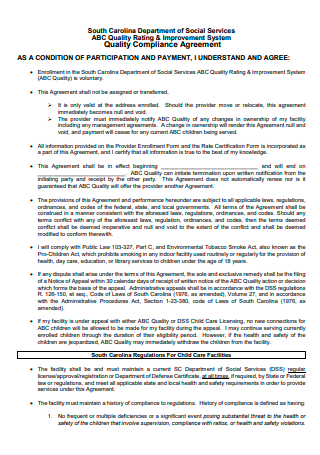
Quality Compliance Agreement
download now -
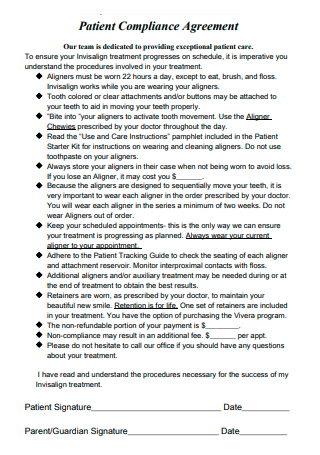
Patient Compliance Agreement
download now -
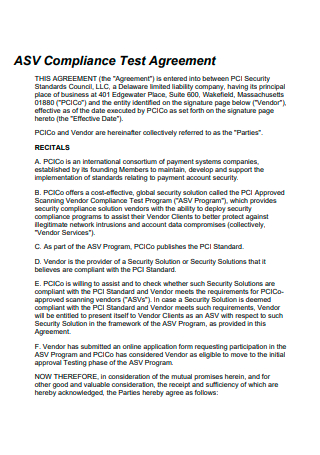
Compliance Test Agreement
download now -
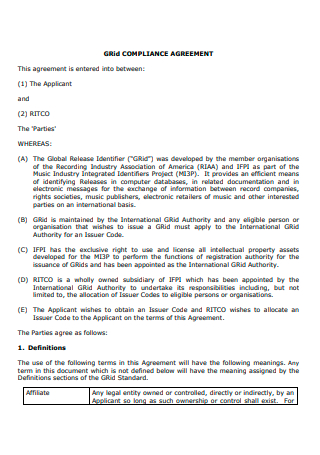
Grid Compliance Agreement
download now -
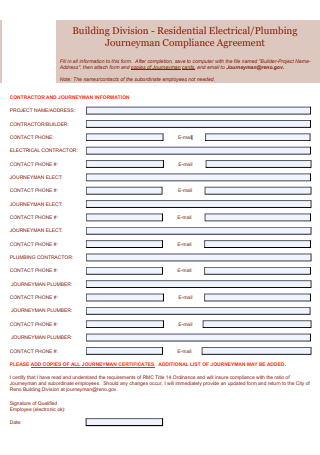
Plumbing Compliance Agreement
download now -
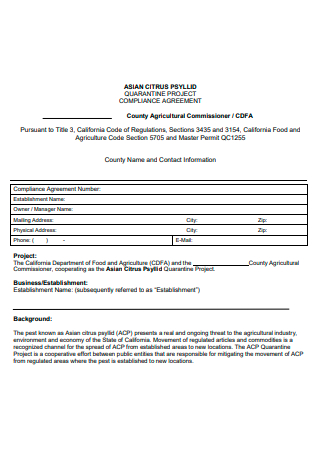
Quarantine Project Compliance Agreement
download now -
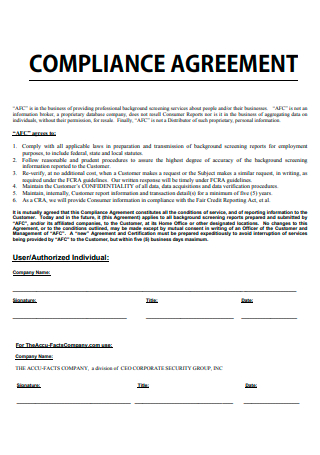
Standard Compliance Agreement
download now -
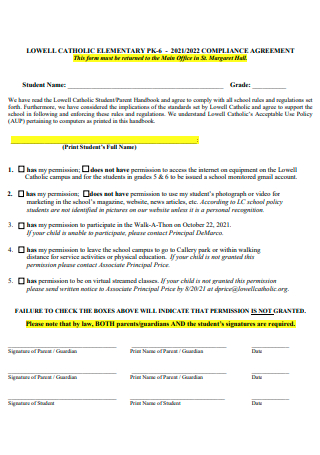
Elementary Compliance Agreement
download now -
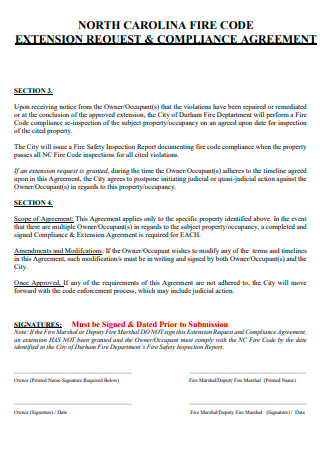
Extension Request and Compliance Agreement
download now -
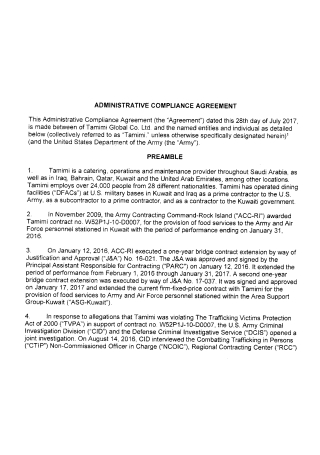
Administrative Compliance Agreement
download now -
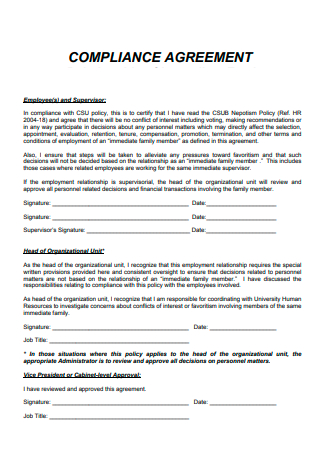
Printable Compliance Agreement
download now -
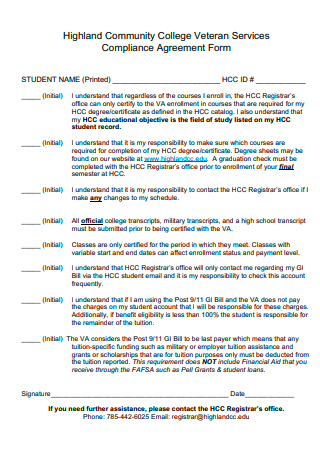
Compliance Agreement Form
download now -
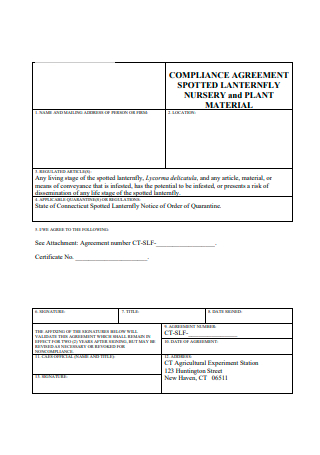
Formal Compliance Agreement
download now -
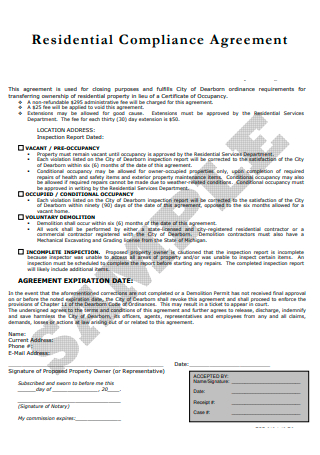
Residential Compliance Agreement
download now -
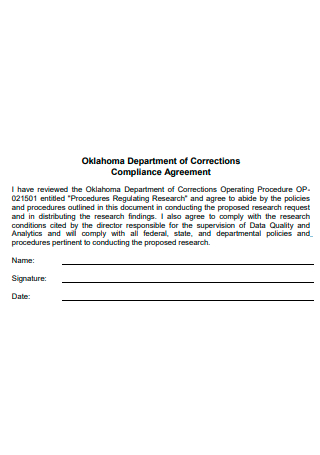
Compliance Agreement Format
download now -
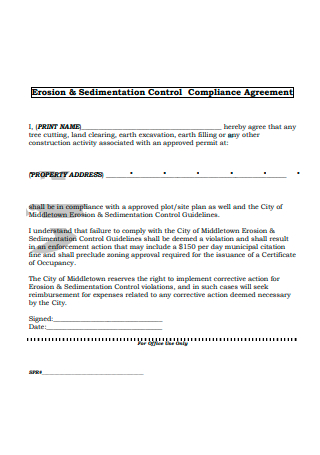
Erosion and Sedimentation Control Compliance Agreement
download now -
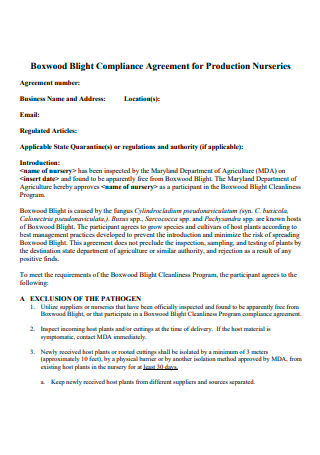
Compliance Agreement For Production Nurseries
download now -
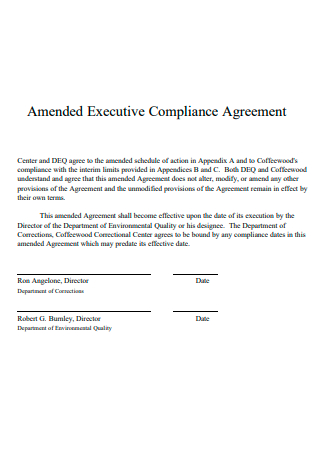
Amended Executive Compliance Agreement
download now -
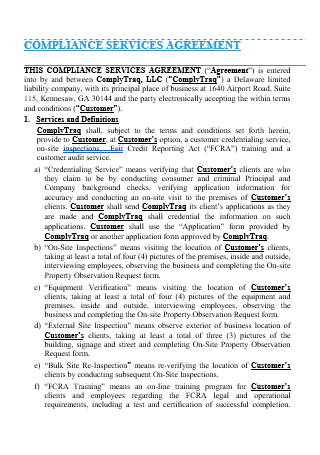
Compliance Services Agreement
download now -
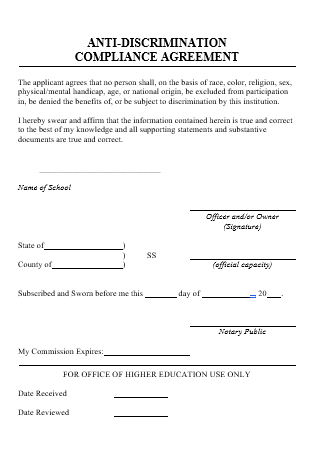
Anti-Discrimination Compliance Agreement
download now
FREE Compliance Agreement s to Download
40+ Sample Compliance Agreement
What Is a Compliance Agreement?
What Is the Importance of Compliance Agreement?
What Are the Benefits of Compliance Agreement?
What Are the Best Practices for Compliance Agreement?
What Are the Two Types of Compliance?
How to Manage Compliance Agreement?
FAQs
What Is the Difference Between a Compliance Agreement and a Correction Agreement?
What Is Legal and Regulatory Compliance?
What Are the Objectives of Compliance?
What Aspects of Compliance Do You Think Are Most Important?
What Is a Compliance Agreement?
Compliance Agreement ensures grant recipients, government agencies, and contract holders are complying with the standards set by the government regarding equal opportunity employment. This means accepting applications and soliciting bids from minorities and women and ensuring organizations receiving government grants follow fair practices when hiring, retaining, and promoting. In Compliance Agreement, the Company has prepared certain closing documents in reliance upon information and materials obtained by the Company and/or supplied to the Company by others. There should be an understanding and agreement that the documents may contain errors, the Company shall not be responsible or liable for the accuracy or completeness of the information contained in the Documents, the Documents are accepted as true and correct by me, and if any of the Documents are lost, misplaced, misstated or inaccurately reflect the terms and conditions of the transaction contemplated by the parties to the subject transaction, the parties involved agree to promptly comply with the Company’s request to correct any such errors, including the execution of replacement or corrected closing documents and/or the deposit of additional funds with the Company which, for whatever reason, were not collected at closing, or the return of funds to the Company which were disbursed in error to a party at closing.
What Is the Importance of Compliance Agreement?
An agreement is a manifestation of mutual assent by two or more persons to one another. It is a meeting of the minds in a common intention, and is made through offer and acceptance. An agreement can be shown from words, conduct, and in some cases, even silence.
Contract Compliance Process
Contract compliance involves periodic reviews of existing contracts that may require contract holders and grant recipients to provide information about their hiring practices and overall workforce makeup. It may also involve the investigation of discrimination claims from job applicants or business owners who feel they’ve been discriminated against.
Contract Compliance Outcome
The goal of contract compliance is ensuring the promotion of fair hiring practices at every level of the government. Government agencies are held to the same standards as business owners when making hiring decisions.
Governments use contractors frequently, resulting in a valuable revenue source for contract holders. For this reason, it is important that there be no unfairness due to negligence or bias regarding minority and women-owned businesses.
What Are the Benefits of Compliance Agreement?
As well as protecting each party in the agreement, there are other very good reasons to practice contractual compliance. Failing to comply with the rules set out in a contract can see your business face hefty financial consequences. Contractual compliance helps you avoid the unnecessary costs of fines, penalties, or damages. Contractual compliance supports customer and partner relationships and retention. Your clients and suppliers expect any organization they do business with to respect and commit to the rules laid out in their agreements. If you don’t follow good contract management practices, your business’s reputation will suffer. Among other things, productivity and profitability are what keeps your doors open. Any disruptions to this as a result of compliance issues can severely impact your business – including closing your doors, temporarily or permanently.
What Are the Best Practices for Compliance Agreement?
Some of the processes that focus on the best practices for contract compliance management include the following: Here are seven best practices to ensure contract compliance.
What Are the Two Types of Compliance?
There are two main types of compliance that denote where the framework is coming from: corporate and regulatory. Both corporate and regulatory compliance consist of a framework of rules, regulations and practices to follow. Corporate and regulatory compliance are very similar, with their main difference being whether their policies come from internal or external regulations.
Corporate Compliance. Applies to the rules, regulations and practices an organization puts into place for compliance—according to both external regulations and internal policies.
Regulatory Compliance. Applies to the rules, regulations and practices an organization puts into place for compliance—according to external regulations.
How to Manage Compliance Agreement?
Contractual compliance is a form of management that ensures each party to the contract meets their agreed obligations and performance standards.
Step 1: Follow Set Standards And Procedures When Storing Agreements
It’s important to have a central repository for all your contracts. You can’t always rely on being able to hold on to physical copies. A central repository makes it easier to find contracts and assures their confidentiality by giving access to authorized employees only. A cloud-based repository allows you to grant permissions and implement any other necessary security features to keep your contracts and the information in them safe. It is also an excellent disaster recovery tool.
Step 2: Be Aware of Key Milestones and Set Reminders
Every contract has milestones that must be met as part of fulfilling its obligations. It’s highly beneficial to set appropriately timed reminders for those milestones once all the relevant parties have executed a contract. This might be in the form of calendar events, setting up a checklist, or creating task reminders. These will then send out alerts so the right people are aware of what needs to be done, and when, reducing any risk of non-compliance.
Step 3: Establish a Contract Review Process
Contract compliance doesn’t end after execution, or even after a project is completed. As a product and/or service provider, your warranty process and obligations rely on you continuing to adhere to your contract obligations. Conduct a periodic contract review to make sure you’re still complying with ongoing contracts you’re executing, as well as any closed contracts to confirm all obligations were carried out as expected.
Step 4: Define Process Owners, Roles and Responsibilities
Make sure every member of your team is aware of their role in maintaining your business’s contract compliance. This means clearly defining everyone’s duties and responsibilities. Too often, things fall through the cracks simply because employees were unaware of what was expected of them. Use their role descriptions in your Way We Do account to clearly set out what processes they own, and what duties and responsibilities they need to carry out.
In addition, establish clear processes for how you manage contractual compliance in your business. There are a number of tasks you’ll need to complete before executing a contract. Make sure they’re completed correctly, and that your team can uphold compliance standards, by completing an Activated Checklist in Way We Do. Rarely are two contracts ever the same, but there will be some similar activities in each case your team can carry out each time to keep things consistent, and compliant.
Step 5: Keep Up with Market Changes to Maintain Compliance
In business, we know the only constant is change. This could mean changes in legislation that might affect how you deliver your services, or consumer laws that you need to integrate into updated contract terms. Make sure you have the support of the appropriate legal counsel – ideally, someone with seasoned experience in Consumer Law or Business Law – to help you manage any changes or updates you need to make to your contracts.
Step 6: Appoint a Contract Compliance Manager
If you don’t have the resources to hire a dedicated staff member in this role, assign it to someone on your existing team. This person should be a member of your leadership team, possibly with the assistance of another senior manager, as they would typically be aware of any contracts the business is engaged in. Your contract compliance manager would be responsible for executing contracts, maintaining records, and identifying any compliance problems. They would also provide guidance and training to the rest of your employees to make sure they all understand their roles and responsibilities in complying with contracts.
FAQs
What Is the Difference Between a Compliance Agreement and a Correction Agreement?
The Correction Agreement Limited Power of Attorney is very similar in purpose to the compliance agreement which asks the borrowers to agree to comply if their help is needed in straightening out any clerical errors. It is a common loan document, but is not in all loan packages.
What Is Legal and Regulatory Compliance?
Regulatory compliance outlines the goals that organizations want to achieve in their efforts to ensure that they are aware of and take steps to comply with relevant laws, policies, and regulation. Compliance means conforming to a rule, such as a spec, policy, pattern or law.
What Are the Objectives of Compliance?
Compliance officers provide an in-house service that effectively supports business areas in their duty to comply with relevant laws and regulations and internal procedures. Their objective is to make sure that an organization has internal controls that adequately measure and manage the risks it faces.
What Aspects of Compliance Do You Think Are Most Important?
Preventing fraud and abuse and other compliance issues. Operating in accordance with applicable laws and regulations. Creating a culture of honesty and integrity. Meeting high ethical and professional standards.
A compliance system that works properly also knows when compliance must change, as well as the thought processes regarding it. As an important area in the performance level of a business, Compliance Agreement is designed to increase efficiency and reduce risks. To do this, this agreement must be involved in many aspects of contract management.
While compliance management is essential, it is equally important that the best practices are in place that allow insight when opportunities or a need for change is apparent. Moreover, strategically, this means maintaining the integrity of the processes for monitoring and contract management; making sure contract terms are in alignment with approved corporate policies and practices; and overseeing or developing standard templates for contract and monitoring compliance. The transitional level could include reviewing and approving any proposed variations that affect the standard process, terms, or policies. It may also include monitoring the contract for obligation performance of its specified terms.
